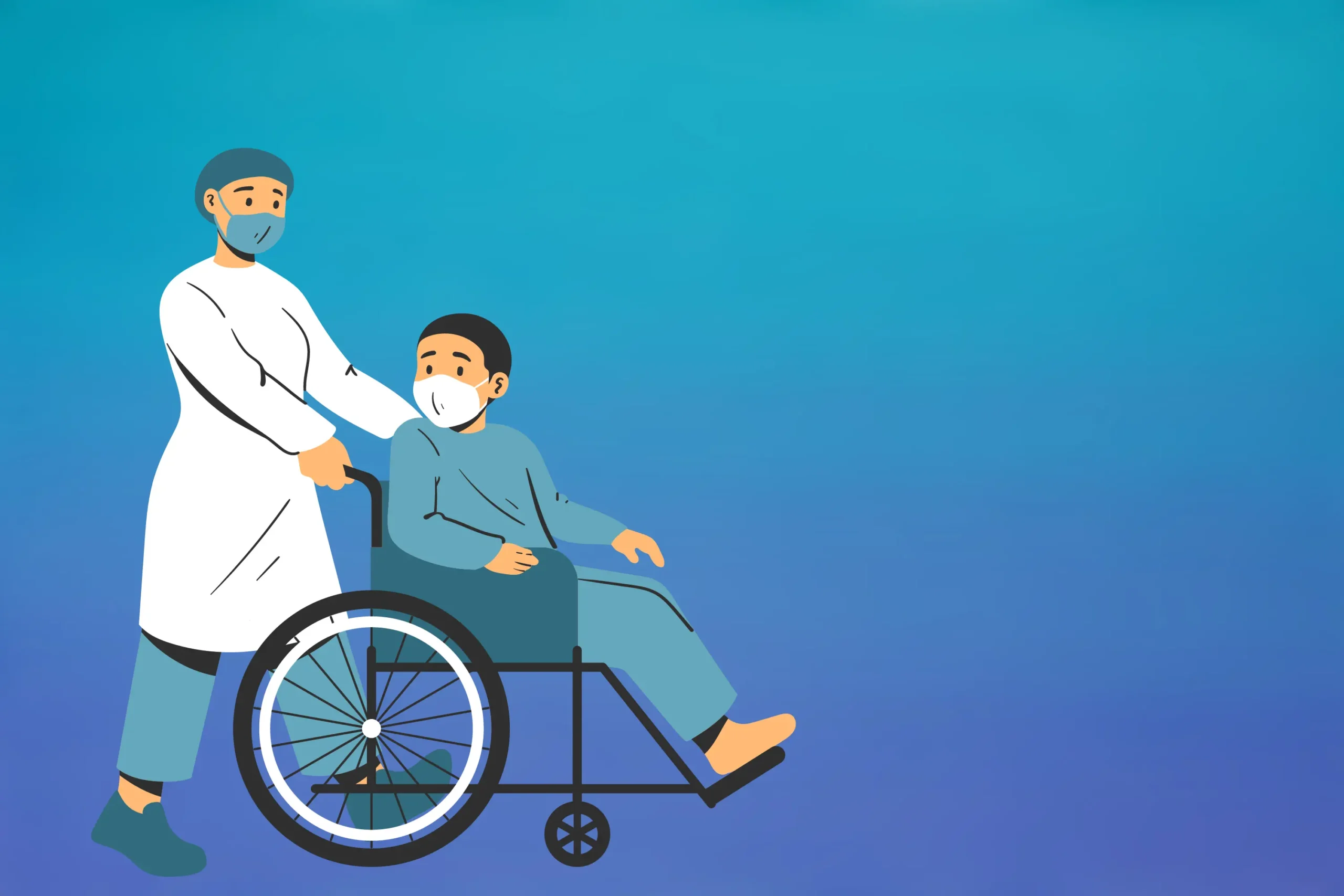At a glance:
- Income protection insurance provides financial assistance to policyholders who become disabled or ill and are unable to work.
- Premiums are also calculated based on income levels and waiting periods selected by policyholders.
- Get in touch with Aspect for financial security for yourself and your family.
Understanding the Coverage of Income Protection Insurance
Income protection insurance aims to offer monetary assistance to policyholders if they are unable to work due to sickness, injury, or disability.
Income Protection Insurance typically provides coverage of up to 75% of the policyholder’s income prior to their disability if they are unable to work. Under Aspect, policyholders are usually able to claim up to 85% of their pre-tax income from the past 12 months. A replacement income helps cover living expenses and financial obligations such as mortgages, utility bills, and grocery bills.
Just like you would receive a salary from a job, you will receive monthly payments once your insurance coverage kicks in. Make sure that your circumstances align with the conditions to be eligible to receive these payments.
How are premiums calculated for Income Protection Insurance?
An Income Protection Insurance policy’s premiums are calculated based on several factors, such as a policyholder’s age, gender, occupation, health, and smoking habits.
Insurers take into account various factors when determining the premiums for Income Protection Insurance, such as the policyholder’s income level and the length of the benefit and waiting periods. Policies with longer benefit periods and shorter waiting periods typically have higher premiums.
Moreover, the policyholder’s risk level, occupation type, and medical history can also influence the premium. For example, those who work in high-risk professions like construction and mining may face elevated insurance premiums due to their increased likelihood of injury and disability.
In addition, policyholders have the option to choose between two premium structures – stepped or level. Stepped premiums start off lower but gradually increase as the policyholder ages, whereas level premiums remain constant throughout the policy term.
Waiting Periods and Benefit Periods for Income Protection Insurance
Waiting periods and benefit periods, both of which can affect the cost of premiums and the amount of coverage, are two important features of Income Protection Insurance policies.
A waiting period determines how long you must wait before receiving income protection benefits. Your policy’s cost will be affected by the length of the waiting period you choose, which can range from a few days to several months. Generally, premiums are lower when the waiting period is longer.
With Aspect, you can choose from 14, 30, 60, and 90 days of waiting periods.
On the other hand, the benefit period refers to the duration for which income protection benefits will be paid if the policyholder is unable to work. Policies with longer benefit periods typically come with higher premiums compared to policies with shorter benefit periods. Benefit periods can span from a few months to multiple years or even extend up to retirement age. As a part of its benefits package, Aspect offers an extensive coverage period of 52,104,260 weeks.
Consider your financial situation and needs when choosing your waiting and benefit periods
For example, you may be able to buy a policy with a longer waiting period if you have enough savings to cover your expenses for a few months. If, however, you are faced with ongoing financial obligations, such as mortgage payments or school fees, a shorter waiting period and longer benefit period may be an option to make sure you are covered for as long as possible.
Furthermore, some policies may have additional waiting periods for conditions like mental health problems or back injuries. Ensure your policy meets your needs by understanding the waiting periods and benefit periods.
Comparing Income Protection Insurance with Other Insurance Types
A variety of insurance products are available to help protect your income and financial security. In comparison to other types of insurance, income protection insurance provides the following:
Total and permanent disability (TPD) insurance:
In the event of a total and permanent disability, TPD insurance pays a lump sum amount if you are unable to perform your usual work duties. If you cannot work due to TPD, your family and you will be protected financially.
Trauma insurance:
You can receive a lump sum compensation if you’re diagnosed with a serious illness or injury, like cancer or a heart attack. Upon diagnosis, trauma insurance can help you cover medical expenses and other immediate bills.
Accidental death insurance:
If you die in an accident, accidental death insurance pays your beneficiaries a lump sum. Because accidental death cover only covers injury, it is much cheaper than life insurance. Based on your particular circumstances, the sum insured would typically range from $100,000 to $1,000,000.
Benefits of Having Income Protection Insurance
An income protection policy can provide several benefits, including
Flexibility:
You can often customise income protection insurance policies based on your specific needs. Most plans allow you to choose the waiting period, the benefit period, and the level of coverage you want.
Financial security:
Having income protection insurance can assist you in securing financial security if or when you are unable to work as a result of illness or injury. In this way, you will not have to rely on savings or accumulate debt to cover living expenses like rent or mortgage payments, utilities, and groceries.
Tax benefits:
Generally, income protection insurance premiums are tax deductible, which helps reduce your tax bill.
Add-on coverage:
Additional coverage beyond the standard benefits of income protection insurance is available from several insurance companies. These optional add-ons may include insurance for Total and Permanent Disability (TPD), Trauma, and Accidental Death, among others, which can be purchased separately.
Peace of mind:
Having income protection insurance can provide peace of mind, knowing that you and your family are financially protected in case you become ill or injured.
Access to support services:
Many income protection insurance policies also provide rehabilitation and counselling services to help you recover and return to work more quickly.
Is Income Protection Insurance worth it?
For individuals who rely on their income to meet their daily expenses, income protection insurance can be a prudent investment. It offers a sense of financial security and reassurance in the event of illness or injury that renders them unable to work. During the recovery period, income protection insurance enables them to stay current on their bills and maintain their standard of living.
Having income protection insurance is particularly crucial for individuals with dependents, such as children or a spouse. Even if they are out of work for a prolonged period, it provides essential coverage for their family.
Furthermore, income protection insurance is especially valuable for those with high-risk occupations or hobbies, such as extreme sports. In case of injury or disability resulting from work-related accidents or leisure activities, income protection insurance can help protect their financial stability.
Considering Income, Expenses, and Financial Obligations When Choosing Income Protection Insurance
Taking into account your income, expenses, and financial obligations will allow you to determine the level of income protection insurance you require. The following factors need to be taken into account:
Monthly income:
Calculate the amount you want to replace with income protection insurance. You should aim to cover 60-80% of your monthly income as a general rule.
Living expenses:
You should keep track of your monthly living expenses, such as your mortgage or rent payments, utility bills, food, and transportation. Your income protection policy should cover these expenses if you are unable to work.
Debts:
Make sure you factor in any outstanding debt, such as credit card debt, car loans, and student loans. Keeping up with these payments while unemployed can be made easier with income protection insurance.
Savings:
Your coverage calculations should take your savings or emergency fund into account. Use your savings period as a guideline to estimate your benefit period if you are unable to work.
Common misconceptions about Income Protection Insurance
Many misconceptions exist about income protection insurance that prevents people from considering it a viable financial future protection option. Here are some:
“I don’t need income protection insurance because I have sick leave from work.”
Sick leave can provide short-term financial relief if you are incapable of working because of illness or injury. In contrast, income protection insurance provides long-term financial protection for up to several years or until you are able to work again.
“I don’t need income protection insurance because I have savings.”
Savings are important but may not suffice if you are unfit to work for a long time. Your living expenses and financial obligations can be covered by income protection insurance.
“I’m young and healthy, so I don’t need income protection insurance.”
Regardless of your age, accidents and illnesses can happen at any time. Unexpected circumstances can prevent you from working, so income protection insurance can help.
“I have workers’ compensation, so I don’t need income protection insurance.”
You are covered by workers’ compensation only if you suffer an injury or illness at work. On the other hand, income protection insurance pays out in case of any injuries or illnesses.
“Income protection insurance is too expensive.”
Income protection insurance costs vary according to your age, occupation, and health. If you cannot work and don’t have a source of income, the cost of not having income protection insurance is much higher.
What Income Protection Insurance Covers and What It Doesn’t?
Income protection insurance typically covers Illness, injury, disability and
Redundancy: If you lose your job or become redundant, some income protection policies may cover you.
Nevertheless, income protection insurance may not cover certain situations. Among them are
- Pre-existing medical conditions: Pre-existing medical conditions may be excluded from coverage by some insurers or be charged more by others.
- Self-inflicted injuries: Income protection insurance may not cover you if you injure yourself intentionally.
- Unemployment: Income protection insurance may not cover you if you lose your job through misconduct or voluntary resignation.
Tips for Choosing the Right Income Protection Insurance Policy
You may want to take into account the following tips when choosing income protection insurance:
Assess Your Needs:
Decide how much you owe on your mortgage, rent, and household bills. It will help you determine how much coverage you need.
Compare Policies:
Obtain a quote and compare premiums to determine which policy is most suitable for your needs and budget. Compare income protection insurance policies by features, benefits, exclusions, waiting periods, and benefit periods.
Policy Terms and Conditions:
Make sure you read the policy’s conditions, including the definitions of covered events, exclusions, and waiting periods. Understanding what’s covered and what’s not is essential.
Insurer’s Reputation:
A reputable insurer with a good claim payment record is the best choice for income protection insurance policies.
Professional Advice:
Consult a financial advisor or insurance broker who can assist you in assessing your needs, comparing policies, and making an informed decision.
Optional Add-Ons:
To enhance your coverage, you may wish to consider optional add-ons such as TPD insurance, trauma insurance, or accidental death coverage.
Is Income Protection Insurance Necessary?
Even though income protection insurance is not required by law, many people consider it a necessity for those who depend on their income when it comes to financial security. Putting income protection insurance in place can help you maintain your standard of living if you are incapable of working due to illness or injury.
In addition, income protection insurance can offer peace of mind for individuals who lack substantial savings in case of unforeseen events. It provides substantial financial protection and security in case of income loss. However, the decision to purchase income protection insurance is entirely at the discretion of the individual.
Aspect can provide an online quote to fully cover you within ten minutes if you are interested in purchasing income protection insurance. Aside from providing the highest income protection coverage in the market, we also offer customised solutions to suit your unique requirements.
Get in touch with Aspect for financial security for yourself and your family.






